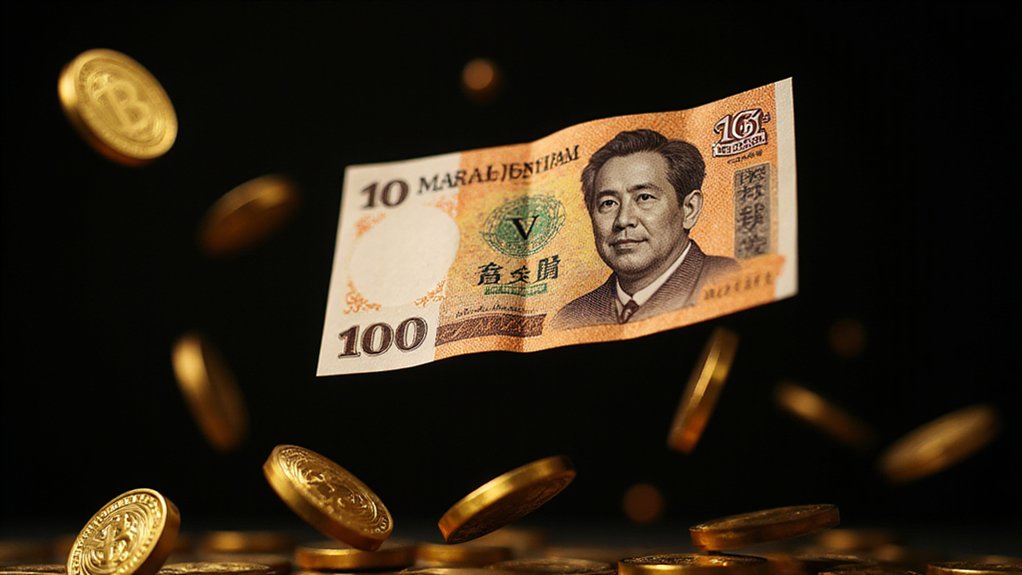While Japan’s current cryptocurrency tax regime treats digital assets with the enthusiasm of a Victorian-era moralist confronting a slot machine—levying rates up to 55% that would make even the most ardent redistributionist blush—the Land of the Rising Sun appears poised for a dramatic fiscal about-face.
The audacious proposal, introduced by LDP lawmaker Akihisa Shiozaki on March 6, 2025, would slash crypto capital gains taxes from their current punitive heights to a flat 20%, aligning Japan with U.S. rates and signaling a remarkable philosophical shift. Currently, cryptocurrency profits exceeding ¥200,000 face progressive income tax rates ranging from 5% to 45%, plus an additional 10% inhabitant tax—a structure that categorizes digital assets as “miscellaneous income” with all the regulatory charm that term implies.
Japan’s proposed crypto tax revolution: from confiscatory 55% rates to a civilized 20% flat tax, finally abandoning its Victorian-era fiscal prudishness.
This isn’t merely tinkering around the edges of fiscal policy; it’s part of a thorough regulatory overhaul designed to transform Japan into a global crypto hub. The proposed reforms include reclassifying cryptocurrencies under the Financial Instruments and Exchange Act rather than the Payment Services Act, effectively elevating digital assets from “property” to “financial products”—a distinction that carries significant regulatory weight.
Finance Minister Katsunobu Kato has committed to completing the crypto tax review by June 2025, with implementation targeted for 2026. The urgency reflects sobering market realities: despite over 11 million crypto asset accounts opened by October 2024, Japan’s prohibitive tax structure has consistently deterred retail participation, creating the peculiar situation where interest exists but investment doesn’t. The FSA proposal specifically aims to correct existing tax biases that have historically disadvantaged cryptocurrency investors compared to traditional stock market participants.
The timing coincides with plans to introduce Bitcoin ETFs, providing regulated exposure for institutional investors who previously viewed direct crypto investment as maneuvering through a regulatory minefield blindfolded. Corporate holders currently face a flat 30% tax on holdings regardless of profit—a particularly creative interpretation of taxation that penalizes mere possession. Japan’s cautious regulatory approach stems from the Mt. Gox hack in 2014, which prompted the country to become the first to formally regulate cryptocurrencies in 2017.
Beyond fiscal mechanics lies a broader strategic gambit: positioning Japan as a Web3 leader while boosting its cashless economy to 40% by 2025. The Democratic Party’s Web3 Project Team supports this regulatory pivot, recognizing that current policies fundamentally gift-wrap domestic crypto talent for export to more accommodating jurisdictions. As investors seek secure storage solutions for their digital assets, non-custodial wallets offer enhanced security and privacy by giving users full control over their private keys.
Whether this represents visionary leadership or desperate catch-up remains to be seen, but the stakes are undeniably high.







